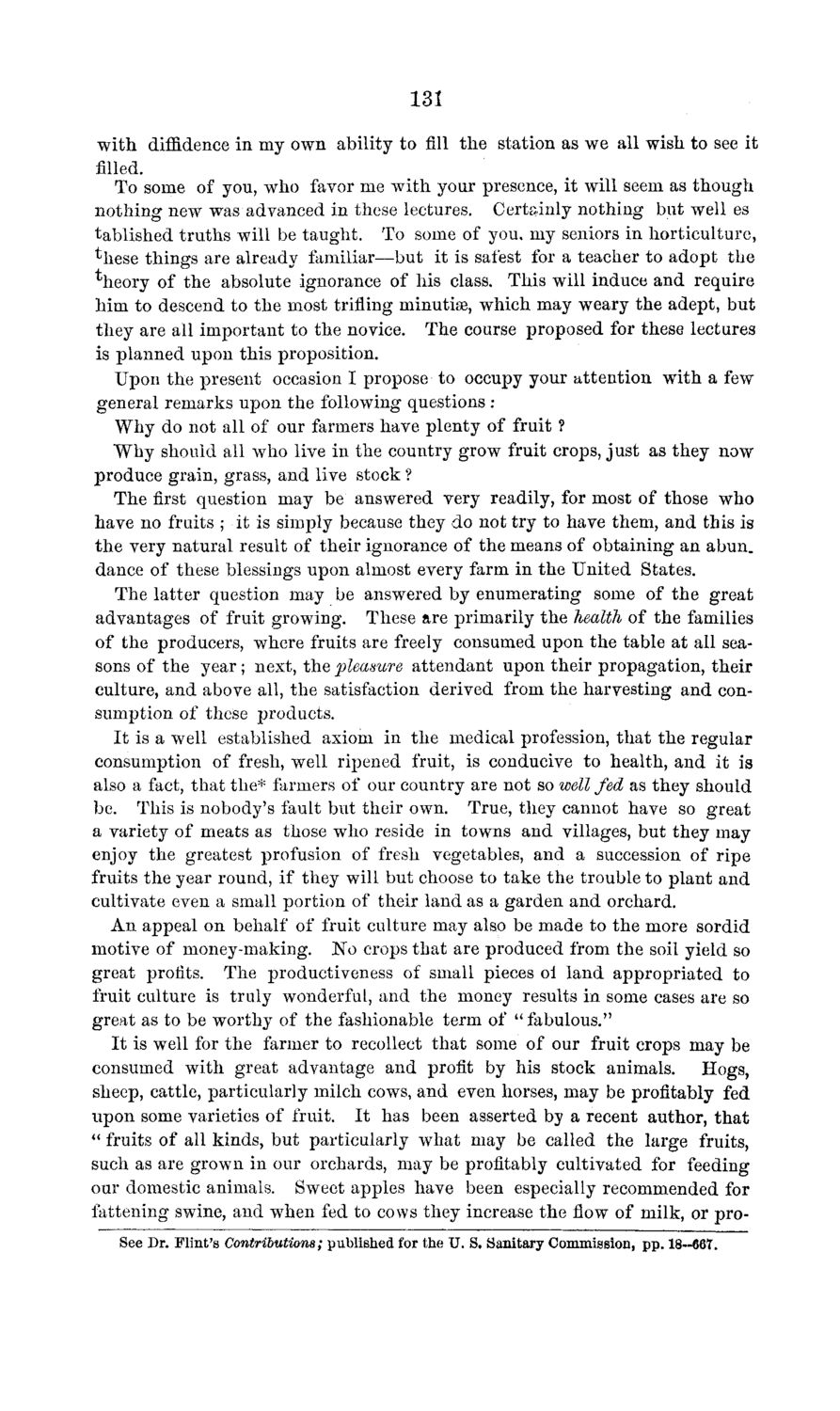| |
| |
Caption: Board of Trustees Minutes - 1869
This is a reduced-resolution page image for fast online browsing.

EXTRACTED TEXT FROM PAGE:
131 w i t h diffidence in my own ability to fill the station as we all wish to see it filled. To some of you, who favor me w i t h your presence, it will seem as though nothing new was advanced in these lectures. Certainly nothing but well es tablished truths will be taught. To some of you, my seniors in horticulture, ^hese things are already familiar—but it is safest for a teacher to adopt the ^heory of the absolute ignorance of his class. This will induce and require him to descend to the most trifling minutiae, which may weary the adept, but they are all important to the novice. The course proposed for these lectures is planned upon this proposition. Upon the present occasion I propose to occupy your attention with a few general remarks upon the following questions : Why do not all of our farmers have plenty of fruit ? W h y should all who live in the country grow fruit crops, just as they now produce grain, grass, and live stock ? The first question may be answered very readily, for most of those who have no fruits ; it is simply because they do not try to have them, and this is the very natural result of their ignorance of the means of obtaining an a bun. dance of these blessings upon almost every farm in the United States. The latter question may be answered by enumerating some of the great advantages of fruit growing. These are primarily the health of the families of the producers, where fruits are freely consumed upon the table at all seasons of the year ; next, the pleasure attendant upon their propagation, their culture, and above all, the satisfaction derived from the harvesting and consumption of these products. It is a well established axiom in the medical profession, that the regular consumption of fresh, well ripened fruit, is conducive to health, and it is also a fact, that the* farmers of our country are not so well fed as they should be. This is nobody's fault but their own. True, they cannot have so great a variety of meats as those who reside in towns and villages, but they may enjoy the greatest profusion of fresh vegetables, and a succession of ripe fruits the year round, if they will but choose to take the trouble to plant and cultivate even a small portion of their land as a garden and orchard. An appeal on behalf of fruit culture may also be made to the more sordid motive of money-making. No crops that are produced from the soil yield so great profits. The productiveness of small pieces ol land appropriated to fruit culture is truly wonderful, and the money results in some cases are so great as to be worthy of the fashionable term of " fabulous." I t is well for the farmer to recollect t h a t some of our fruit crops may be consumed with great advantage and profit by his stock animals. Hogs, sheep, cattle, particularly milch cows, and even horses, may be profitably fed upon some varieties of fruit. It has been asserted by a recent author, t h a t " fruits of all kinds, but particularly what may be called the large fruits, such as are grown in our orchards, may be profitably cultivated for feeding our domestic animals. Sweet apples have been especially recommended for fattening swine, and when fed to cows they increase the flow of milk, or proSee Dr. Flint's Contributions; published for the U. S. Sanitary Commission, pp. 18—66T.
| |